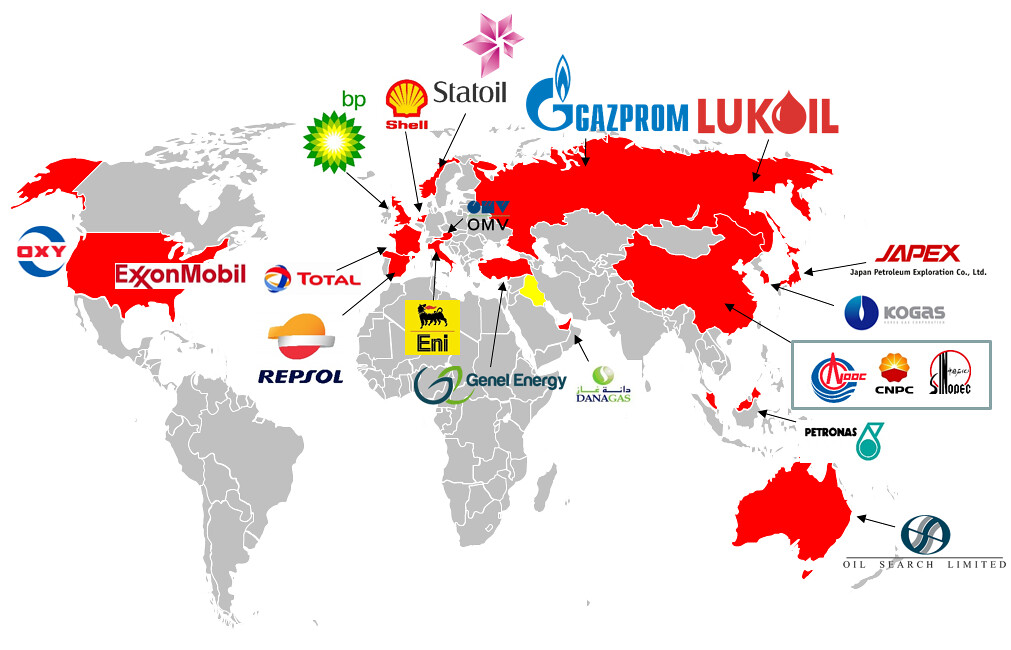A Global Framework for Addressing Iraq’s Challenges: Building Upon Multinational Energy Collaboration
Carter Page suggests that Iraq’s new energy infrastructure has the potential to closely parallel alliances which could do much to help resolve its current crisis.
The Obama administration has begun to consider the conflicts in Syria and Iraq as a single challenge. Other experts have suggested looking more broadly by fully taking into account recent trends seen across the greater Middle East. However, viewing the Iraq conflict even more comprehensively from a global perspective could have a positive impact on achieving an effective resolution of the current adverse situation in the country.
The run-up to the 2003 Iraq War was widely viewed at the time as a signal of decreased multilateralism which ultimately had a significant negative impact on international security. Given the chorus of voices that now consider the 2003 intervention a mistake, avoiding the narrower approaches to collaboration observed at the time can only help to limit the risk of a potential repeat of past problems regardless of the tactics eventually employed in the months to come.
The history of the establishment of the country’s new energy infrastructure following the Iraq War has the potential to closely parallel potential alliances which could do much to help resolve today’s problems. As seen in the figure below, energy sector operators across Iraq including the Kurdistan Region represent many of the most prominent states in the world. The countries highlighted in red stand as both direct beneficiaries in the case of national oil companies as well as less directly for privately-owned international oil companies given their impact from tax and other perspectives. While the current challenges in Iraq may potentially lead some companies to divest their assets in the country, such a broad diversity of corporate and national stakeholders has few parallels anywhere in the world and thereby hints at a unique potential structure for cooperation.
Home Countries of Oil Companies in Iraq (Corporate HQ of Iraqi Operators in Red)
More cynical viewpoints might consider the relationship between international relations and energy in Iraq today from an alternative perspective. In keeping with recent commentary, some may argue that the market relevance of continued Iraqi oil production could serve as a justification for intervention or a financial enabler of further wrongdoing in the country in keeping with the resource curse theory. But as beneficiaries from the oil and gas operations of their country’s corporations, a certain responsibility exists to have some level of involvement in helping to achieve a solution. This is especially the case for those governments that have opposed U.S. hegemony and unilateralism.
Many of the Obama Administration’s domestic critics have hinted at the singularity of U.S. power and the necessity for more muscular tactics. Such perceptions overshadow opportunities for true cooperative leadership which effectively leverages the interests and relative strengths of other key players worldwide.
The hegemony of any single power on the region almost by definition reflects a polar opposite to democratic values. This stands in stark contrast to the often purported objectives of enhanced stability and effective national development. Taken to an extreme, various calls by Washington for Prime Minister Nouri al-Maliki to resign represent a dangerous push to once again control the future of the country. Reverting to regime change, in some ways the most undemocratic of all foreign policy tactics, stands as a potentially problematic approach as has more recently been seen in Libya.
Many of the core sectarian challenges seen in Iraq today may to a certain extent be traced to the Sykes–Picot Agreement of 1916, by Sir Mark Sykes of Britain and French diplomat François Georges-Picot which defined the division of Ottoman Empire territories. While critics have suggested that oil producers such as Russia and Saudi Arabia may have a vested interest in ensuring chaos continues in a way which keeps crude prices high, a constructive dialogue through a multilateral framework for engagement could significantly support these countries’ economic and security interests respectively.
A brief glance at the stakeholders involved in the development of the Iraq oil industry also underscores why using historic security structures such as NATO as a narrow framework for consultation will prove suboptimal, even if a more formal role for the organization in the current conflict remains unlikely in the immediate future. The protests already seen in Russian state media outlets underscore the deep pessimism of underlying motivations.
Dick Cheney and his daughter Liz have suggested that, “Mr. Obama is busy ushering America's adversaries into positions of power in the Middle East. First it was the Russians in Syria.” The predisposition of such judgments reflects more than a mere tendency toward Cold War thinking. Instead, it forgoes a potentially powerful ally which could help to address the challenges in Iraq and the greater Middle East. Some of the largest Russian companies including Lukoil and affiliates of Gazprom have been engaged in the country, while even the Russian national champion Rosneft has considered direct partnerships there with none other than the de facto U.S. national champion ExxonMobil.
Obama has recently noted that, “leaders must rise above their differences and come together around a political plan for Iraq’s future.” Although he was referring to the differences between the Shia, Sunni and Kurds, the same idea equally applies to the challenges that external powers like the U.S. and the E.U. faces in addressing the region’s challenges.
New potential links with Iran as supported by harsh critics such as Senator Lindsay Graham has been a controversy in and of itself. However, it could leave open the potential for new engagements with China, Russia and other emerging powers that have been important investors in that country as well. While commentators have noted the risks that the crisis in Iraq represents to China, greater collaboration between the West and Beijing could offer a greater range of viable solutions.
In a briefing by President Obama on June 19, he pledged that, “The United States will lead a diplomatic effort to work with Iraqi leaders and the countries in the region to support stability in Iraq.” Taking that diplomacy beyond the region offers diverse opportunities for improving the end result.
Carter W. Page is Founder and Managing Partner of Global Energy Capital LLC, an Adjunct Associate Professor at New York University’s Center for Global Affairs and Energy Fellow at the Center for National Policy in Washington.



